Mitch Goth's Blog
January 25, 2017
Treat Your Book Like a Puzzle
 Books that aren't good. We've all read at least one, most have read an unfortunately higher number of them. There's a lot that goes into making a book good, or not good in this case, so this post is far from a bad book cure all for the writers out there. This is mostly focused on the plot of your book, on of the most complex aspects of any story, unless it's some detailed character study. If you do too little, your plot ends up being paper thin, prone to holes, and quick to sputter out and become boring to the reader. However, if you do too much, you end up with a confused, convoluted story that close to nobody can fully follow, understand, or enjoy.
Books that aren't good. We've all read at least one, most have read an unfortunately higher number of them. There's a lot that goes into making a book good, or not good in this case, so this post is far from a bad book cure all for the writers out there. This is mostly focused on the plot of your book, on of the most complex aspects of any story, unless it's some detailed character study. If you do too little, your plot ends up being paper thin, prone to holes, and quick to sputter out and become boring to the reader. However, if you do too much, you end up with a confused, convoluted story that close to nobody can fully follow, understand, or enjoy.There are several solutions to issues in plot construction, my solution is to see the whole plot as a puzzle from the very beginning. Even if you've only got a scene or two played out in your head, or only have a character idea and not a concrete story yet, your puzzle is still there waiting for discovery. But, putting together a puzzle you can't fully see isn't the easiest thing. That's where other aspects of your story come to your aid. Characters, setting, and the like will build parts of the plot for you, and give you something to jump off from. Now all you have to do is not overdo or underdo it. But, I know, easier said than done.
Your plot is a puzzle. Every piece has to fit snugly together, otherwise it will come out misshaped, ugly, and straight-up wrong. Unlike most puzzles, however, plots are malleable, you just have to be willing to make the changes. If a piece just doesn't fit anywhere, don't be afraid to throw it aside and create a new one. Kill the darlings that don't comply to the spaces allowed by the plot. If you like that character, idea, setting, plot point, or whatever a whole lot, great! Use it in a different story. If you force what doesn't fit, you'll end up in some shit. By the end, you should be looking at a flawless puzzle of a plot, and you're not going to get that with the wrong pieces.
Once you're done, though, you shouldn't have any pieces left over either. If you get a 1000 piece puzzle, you're probably not going to call it done at 700 just because the picture you've already made is fine. You should want to expand it to its full potential. The same goes for your plot. There should be no shrugging and "good enough"-ing. Strive towards your idea of perfection, whatever that is (just don't get bogged down in some definition of perfection that isn't yours). Your puzzle, even with a lot of snug, perfectly fitting pieces, will still look ugly with holes and jagged sides. If there's still true potential for development, don't settle, keep building. You'll be surprised just how great it'll look when the day comes that it's finally done.
Know when to stop your development though. When the sides of your puzzle straighten out, don't try to keep building onto them, then soon all you'll have are jagged sides and bloated ugliness. This balance is the hardest part to any plot-builder. Know when you're finished, when good enough is actually fantastic. This isn't something I can help you with, unfortunately, it's all up to you to know when your puzzle is fully complete. Every piece should fit together completely and comfortably, there should be no jagged edges or empty holes where pieces should be, and each piece should work with the others to form one, cohesive, crystal-clear picture. If the picture is confusing and cloudy, switch some pieces around, replace some entirely, and get that clear and cohesive plot every writer should strive for.
Now, if you liked what I said about plots, check out a few of mine on AMAZON (also available on B&N, Smashwords, iBooks, and Kobo).
Published on January 25, 2017 07:27
November 8, 2016
Write Like Your Future Depends On It
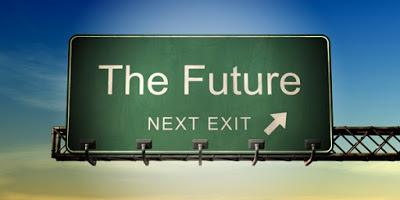 Besides never starting, the only true way to never achieve your goals is to quit. Writers, like all other sorts of dreamers and artists, are often held down by self-doubt, procrastination, and mental blockages. Easily half of the writing-related posts I see on places like Facebook and Twitter are people saying how they lack motivation, self-esteem, or are held down by writers block. Sometimes, unfortunately, these factors become too much for some people, and they close the book on their writing careers for good. How can someone power through all this negativity and keep on writing? A simple answer is this: Write like your future depends on it. There are two reasons for this answer, 1) your future as a writer absolutely depends on it, and 2) your entire future just might depend on it someday.
Besides never starting, the only true way to never achieve your goals is to quit. Writers, like all other sorts of dreamers and artists, are often held down by self-doubt, procrastination, and mental blockages. Easily half of the writing-related posts I see on places like Facebook and Twitter are people saying how they lack motivation, self-esteem, or are held down by writers block. Sometimes, unfortunately, these factors become too much for some people, and they close the book on their writing careers for good. How can someone power through all this negativity and keep on writing? A simple answer is this: Write like your future depends on it. There are two reasons for this answer, 1) your future as a writer absolutely depends on it, and 2) your entire future just might depend on it someday.This might sound a little insane, but stay with me for a second. How can your whole life depend on sitting in front of a computer and letting your imagination pour onto the page impact your future in a big enough way as to justify my above statement? Well, for one, if you're a writer who isn't at some point thinking about writing professionally, making it big, becoming a worldwide bestseller, going on book tours, inking movie deals, etc. then you're simply thinking too small. Dream a little. And if that is the end goal of writing career (which it should be, likelihood be damned), then think about that life a little bit more. You know what comes with publishing contracts? Deadlines. And it doesn't matter if you're Joe Nobody or Stephen King, if you continuously screw yourself on those deadlines then you're getting dropped faster than a hot potato, my friend. And to all the indie writers out there like myself, this applies to you too, you don't get let off from this because you have no company setting deadlines for you. If you don't have to answer to an agent or executive, then you still have to answer to your fan-base, who can sometimes be worse than any pushy publisher. Self-doubt, motivational dry-spells, and such will always be there, but if you let it slow you down too much then your future writing career is already dead even if you're still plugging away at the keyboard now. You've gotta keep going, for the sake of future you and their hopefully still present desire to write professionally.
In short, your entire future depends on you writing because you want it to, or you should anyway. If you want to one day write professionally, traditionally or indie, then at the most basic level you want to write like your life depends on it. So, that begs the question, if you want to do that in the future, why in the hell aren't you doing that now? It's hard for a lot of us, myself included, to think this way when we seem so far off from the goal of professional, but it's time we fully rethink the act of writing. Sure, it might just be a hobby or side-job for you now, but you shouldn't be writing for where you're at now, you should be writing for where you hope to be. You want to be a bestseller? Write like one. You just want to make a living off your work? Write like you want it. Write like the successful writer you imagine yourself being, because that successful version of you has a lot of responsibilities to deal with, and if they screw it up they screw up their whole livelihood. So take on those writerly responsibilities now, for the sake of a better, more successful, and less stressed future you.
Self-doubt and writers block will always be there, no amount of writing or readership will ever really shake it out of you. You can't succumb to all that negativity, your future as a writer already depends on that. But you could help yourself away from that possibility by really writing like your future, your life, depends on it. For professional writers, quitting isn't an option. Writing is their income, their livelihood, their full-on career. Think of yourself in the exact same position, even if you only sell a copy or two in a month, if that. Think and act as if writing really was your career, and stalling, pausing, putting off deadlines, or anything like that would mean a missed paycheck, or worse. If you re-frame your thought process in that way, suddenly the self-doubt, lack of motivation, etc. all doesn't seem so hard to get through. There's no better motivation to keep moving forward to know you can't really go back, and it'll show in you and your work if you let it. If you want to move forward with your craft and your writing career goals, then write like your future already depends on it, otherwise there's a chance it never will.
And now it's time for the shameless plug at the end of the blog post! If you liked this post, check out my books on AMAZON (also available on B&N, Smashwords, iBooks, and Kobo).
Published on November 08, 2016 18:03
October 2, 2016
Writing Comes Alive: The Beauty of Collaboration
Writers, particularly independent ones, see the idea of having their work come alive in visual media as a dream, or a completely un-achievable goal (for all the pessimists out there). The exception to this would be comic and graphic novel writers. They write specifically for the visual medium, and there's a lot we can learn from them and what they do. Writers are, by definition, dreamers. And we like to dream big. But there's a downside to that. When we think of our writing in a powerful visual medium, we think TV and movies, or at least a web series or something. We overlook so much dreaming so big.
There are numerous ways writing can come alive as visuals. One of the most common ways (and one of the most oft overlooked ways) is that of the comic. When we think comics, most of us probably think of the old generation classics, Batman, Superman, Marvel/DC, etc. But comic art has changed immensely since then. Not only is it more accessible to comic artists, it is much more of an accessible medium to writers as well. And I don't think a lot of people realize that yet. The great expanse of the internet has allowed not just independent writers to flourish and spread their art, but artists of all kinds. Collaboration between artists is easier than ever, we just need to utilize it.
Honestly, it was only recently that I discovered how easy and how mutually beneficial collaboration can be. Several months ago, a friend and I decided to collaborate on a web comic (see: collaboration being easier than ever). On a basic level, it was clearly beneficial to both of our work ethics. It required them to draw, and required me to write. It added a whole new level to the production of art. We weren't just fucking ourselves over anymore if we stopped, and there's very few motivations better than that. This collaboration also allows both of us to showcase our skills in a way that people can view and enjoy for free, and get a sense for our work in an easily digestible way that doesn't require much personal investment to get through. A comic reads far faster than novel, and comes with the additional creative voice that is illustration.
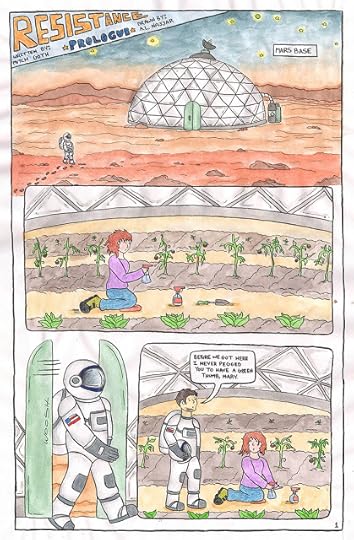
From the writer side of things, and beyond the basics, a collaboration that allowed my work to come alive meant access to something that I long thought impossible. Not only was it a chance to see my writing personified, but it was a chance to see just how well I was doing at painting word pictures. If a scene didn't come out the way I was expecting in terms of setting, or other non-dialogue aspect, then it would show a problem in my narrative and descriptive power. If it didn't hit the page like I thought, it was on my descriptions. But, I can breathe a sigh of relief, because so far everything has come through simultaneously just like I imagined and better than I could have ever imagined (see: power of illustration). That's the beauty of visual media, it can give you everything you wanted, and the things you never knew you wanted.
If you take anything from this blog post, take this: collaborate more. Not just with others in your medium, but those outside it. I would be hard pressed to think of anything that has expanded my imagination ability more in such a short time. It doesn't even have to be writer/visual artist. It can be anything. Collaborate with musicians, media artists, sculptors, the list is endless. And if you look at anything on that list and say "impossible" then you're not imagining great enough.
Being a writer, it's hard for me to imagine the impact of collaboration from the other end, but I hope it is just has wonderful and beneficial to them as it is to me. If collaboration is done right, you'll be helping both yourself and the other artist(s) there working with you. Artists don't help other artists nearly as much as they should. Collaboration can bridge that gap, we just have to do it.
And to all the closed off artists out there, whose skin would sizzle if they opened up their art and themselves to their fellow artists (whether we try to or not, artists of all kinds can end up being the most judgmental), there is a way you can still bridge the gap and inspire the artists around you of all kinds: homage. Fan art is the most common thing on the internet today that connects to this. If you enjoy a piece of art, be it a novel, a song, a painting, or anything else, let it inspire you to pay homage. Fan art, at least by my definition, is art created out of respect for another piece of great art. In my opinion, there's not nearly enough of it in the world. Artists, particularly independent ones, struggle to find an audience, much less hear from them. A single piece of fan-made art can inspire another artist to keep on keeping on for years. There's a lot of ways different mediums can come together and help each other, and whether it's long-term collaboration or a simple homage, a little can go a long way.
If you're interested in seeing the result of my collaboration thus far, check out the web comic I'm writing, Resistance. And, if you're looking for my non-collaborative work, check out my Amazon page.
There are numerous ways writing can come alive as visuals. One of the most common ways (and one of the most oft overlooked ways) is that of the comic. When we think comics, most of us probably think of the old generation classics, Batman, Superman, Marvel/DC, etc. But comic art has changed immensely since then. Not only is it more accessible to comic artists, it is much more of an accessible medium to writers as well. And I don't think a lot of people realize that yet. The great expanse of the internet has allowed not just independent writers to flourish and spread their art, but artists of all kinds. Collaboration between artists is easier than ever, we just need to utilize it.
Honestly, it was only recently that I discovered how easy and how mutually beneficial collaboration can be. Several months ago, a friend and I decided to collaborate on a web comic (see: collaboration being easier than ever). On a basic level, it was clearly beneficial to both of our work ethics. It required them to draw, and required me to write. It added a whole new level to the production of art. We weren't just fucking ourselves over anymore if we stopped, and there's very few motivations better than that. This collaboration also allows both of us to showcase our skills in a way that people can view and enjoy for free, and get a sense for our work in an easily digestible way that doesn't require much personal investment to get through. A comic reads far faster than novel, and comes with the additional creative voice that is illustration.

From the writer side of things, and beyond the basics, a collaboration that allowed my work to come alive meant access to something that I long thought impossible. Not only was it a chance to see my writing personified, but it was a chance to see just how well I was doing at painting word pictures. If a scene didn't come out the way I was expecting in terms of setting, or other non-dialogue aspect, then it would show a problem in my narrative and descriptive power. If it didn't hit the page like I thought, it was on my descriptions. But, I can breathe a sigh of relief, because so far everything has come through simultaneously just like I imagined and better than I could have ever imagined (see: power of illustration). That's the beauty of visual media, it can give you everything you wanted, and the things you never knew you wanted.
If you take anything from this blog post, take this: collaborate more. Not just with others in your medium, but those outside it. I would be hard pressed to think of anything that has expanded my imagination ability more in such a short time. It doesn't even have to be writer/visual artist. It can be anything. Collaborate with musicians, media artists, sculptors, the list is endless. And if you look at anything on that list and say "impossible" then you're not imagining great enough.
Being a writer, it's hard for me to imagine the impact of collaboration from the other end, but I hope it is just has wonderful and beneficial to them as it is to me. If collaboration is done right, you'll be helping both yourself and the other artist(s) there working with you. Artists don't help other artists nearly as much as they should. Collaboration can bridge that gap, we just have to do it.
And to all the closed off artists out there, whose skin would sizzle if they opened up their art and themselves to their fellow artists (whether we try to or not, artists of all kinds can end up being the most judgmental), there is a way you can still bridge the gap and inspire the artists around you of all kinds: homage. Fan art is the most common thing on the internet today that connects to this. If you enjoy a piece of art, be it a novel, a song, a painting, or anything else, let it inspire you to pay homage. Fan art, at least by my definition, is art created out of respect for another piece of great art. In my opinion, there's not nearly enough of it in the world. Artists, particularly independent ones, struggle to find an audience, much less hear from them. A single piece of fan-made art can inspire another artist to keep on keeping on for years. There's a lot of ways different mediums can come together and help each other, and whether it's long-term collaboration or a simple homage, a little can go a long way.
If you're interested in seeing the result of my collaboration thus far, check out the web comic I'm writing, Resistance. And, if you're looking for my non-collaborative work, check out my Amazon page.
Published on October 02, 2016 12:10
August 17, 2016
A Letter to the Hopeless Writers
Dear Writer,
If you're reading this, you were probably drawn in by the title. I know I would be. I'm sure you're expecting some bitter, hateful rant against some kind of writer or another. After all, I did just call them hopeless. But, in this post, you will find no bitterness or spite. That's because I don't use 'hopeless' in that way. The Hopeless Writers are the kind I support more than any other, and the kind I love the most. And that's because I am one of them, and everyone else should be too.
Just today, I read a blog post from NYT bestselling author Jennifer L. Armentrout (you can read that post here, it is quite good) and, while I agree with what she said and understand the message she is putting across to the writers of the world, I had trouble connecting with the overall message. Why? Two reasons. One, I am soooooooooooooooooooooooo far away from landing on any sort of bestseller list of any kind, that I have trouble even imagining myself hitting one at any point in the 5 to 7 decades I hopefully still have left on earth. And two, and this is the REALLY important one, I genuinely, sincerely, absolutely, don't give a fuck. That's what makes me, and all the others like me, hopeless. It's not that we're without any hope of rising to the point of bestseller, it's that hope doesn't mean anything to us. It's completely unimportant and irrelevant to the task at hand: writing.

Over the past several years, I have developed a more nihilistic view towards humanity. For those unaware, nihilism is the belief that humanity, and everything humans have ever created, is pretty much meaningless. Going into detail about my particular brand of nihilism and what it entails would be a post within itself, so we'll leave it at that. But, how can someone who believes anything ever created by humans is meaningless still find the motivation to create? Easy. You do it because you enjoy it, more than anything else. It is because of this belief that the quest for the NYT or USA Today bestseller lists never causes me any concern, nor have my low sales figures. These things do not impact or impede my desire to create, because I simply enjoy creating and accept that nothing else really matters.
The best way I can think to describe what it's like to be a Hopeless Writer is to use the words of Hip Hop artist Murs: "I would still be rapping if I never made a penny". It should be noted that Murs spoke these words not as some yet-to-be-discovered talent or as a young, hopeful boy. He said this 19 albums, and 20 years, into his career. I think about this sentence a lot, at least a few time per week. Switch out rapping for writing, and you've got my general belief system. I can say, with all the confidence in the world, that I would still be writing if I never made a dime off of it for my entire life. I do it for the enjoyment, because it is the thing I love doing, more than anything else. And when it comes right down to it, nothing else matters.
Bestseller lists don't matter, sales figures don't matter, not even reviews matter when it comes right down to it. Because if a dinosaur-style meteor hit the earth right now, it wouldn't matter if you were a nameless mid-lister lost among the masses of Amazon or if you were James Patterson. You, and every trace of your individual impact or existence would be gone. It's a freeing thought if you think about it. It puts everyone on a level playing field. And when nobody is any higher than anyone else, regardless of bestseller lists and sales figures, then the competition ceases to exist. The competition that created the goals that people hope for and the pitfalls that people fear becomes meaningless.
So, shout out to all the Hopeless Writers. To the people who couldn't care less about any of that stuff. To the people who understand it isn't about higher sales, or showing up on lists, or being known. To the people who ditch the idea of hope for the much simpler idea of happiness. To the people that embrace the fact that they love what they do and that nothing else really matters. We're all on the same level. Everything we create, no matter how big or life changing it may become, will eventually be annihilated from all universal existence. So as long as you're doing the thing that brings you joy, and writing the things you want to write, everything else should be irrelevant.
Sincerely,
A happy, Hopeless Writer
And, even though nihilism dictates that its creation and existence is meaningless in every way, shape, and form, you should check out my new novel, War Town. Now available for pre-order on Amazon and Smashwords. Coming October 24th!
If you're reading this, you were probably drawn in by the title. I know I would be. I'm sure you're expecting some bitter, hateful rant against some kind of writer or another. After all, I did just call them hopeless. But, in this post, you will find no bitterness or spite. That's because I don't use 'hopeless' in that way. The Hopeless Writers are the kind I support more than any other, and the kind I love the most. And that's because I am one of them, and everyone else should be too.
Just today, I read a blog post from NYT bestselling author Jennifer L. Armentrout (you can read that post here, it is quite good) and, while I agree with what she said and understand the message she is putting across to the writers of the world, I had trouble connecting with the overall message. Why? Two reasons. One, I am soooooooooooooooooooooooo far away from landing on any sort of bestseller list of any kind, that I have trouble even imagining myself hitting one at any point in the 5 to 7 decades I hopefully still have left on earth. And two, and this is the REALLY important one, I genuinely, sincerely, absolutely, don't give a fuck. That's what makes me, and all the others like me, hopeless. It's not that we're without any hope of rising to the point of bestseller, it's that hope doesn't mean anything to us. It's completely unimportant and irrelevant to the task at hand: writing.

Over the past several years, I have developed a more nihilistic view towards humanity. For those unaware, nihilism is the belief that humanity, and everything humans have ever created, is pretty much meaningless. Going into detail about my particular brand of nihilism and what it entails would be a post within itself, so we'll leave it at that. But, how can someone who believes anything ever created by humans is meaningless still find the motivation to create? Easy. You do it because you enjoy it, more than anything else. It is because of this belief that the quest for the NYT or USA Today bestseller lists never causes me any concern, nor have my low sales figures. These things do not impact or impede my desire to create, because I simply enjoy creating and accept that nothing else really matters.
The best way I can think to describe what it's like to be a Hopeless Writer is to use the words of Hip Hop artist Murs: "I would still be rapping if I never made a penny". It should be noted that Murs spoke these words not as some yet-to-be-discovered talent or as a young, hopeful boy. He said this 19 albums, and 20 years, into his career. I think about this sentence a lot, at least a few time per week. Switch out rapping for writing, and you've got my general belief system. I can say, with all the confidence in the world, that I would still be writing if I never made a dime off of it for my entire life. I do it for the enjoyment, because it is the thing I love doing, more than anything else. And when it comes right down to it, nothing else matters.
Bestseller lists don't matter, sales figures don't matter, not even reviews matter when it comes right down to it. Because if a dinosaur-style meteor hit the earth right now, it wouldn't matter if you were a nameless mid-lister lost among the masses of Amazon or if you were James Patterson. You, and every trace of your individual impact or existence would be gone. It's a freeing thought if you think about it. It puts everyone on a level playing field. And when nobody is any higher than anyone else, regardless of bestseller lists and sales figures, then the competition ceases to exist. The competition that created the goals that people hope for and the pitfalls that people fear becomes meaningless.
So, shout out to all the Hopeless Writers. To the people who couldn't care less about any of that stuff. To the people who understand it isn't about higher sales, or showing up on lists, or being known. To the people who ditch the idea of hope for the much simpler idea of happiness. To the people that embrace the fact that they love what they do and that nothing else really matters. We're all on the same level. Everything we create, no matter how big or life changing it may become, will eventually be annihilated from all universal existence. So as long as you're doing the thing that brings you joy, and writing the things you want to write, everything else should be irrelevant.
Sincerely,
A happy, Hopeless Writer
And, even though nihilism dictates that its creation and existence is meaningless in every way, shape, and form, you should check out my new novel, War Town. Now available for pre-order on Amazon and Smashwords. Coming October 24th!
Published on August 17, 2016 16:39
July 11, 2016
Don't Get Jealous, Get Inspired
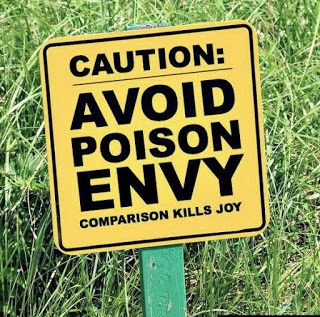 http://expressivevoicedynamics.com/category/envy/
http://expressivevoicedynamics.com/category/envy/Writers are, generally speaking, envious people. We have plenty reasons to be. Libraries, bookstores, and online shops are stacked full with NYT bestselling books from countless authors, stacked with amazing stories thousands of people will cherish and remember for decades or centuries. It's quite easy for a writer to ask the question: why not me? And to tell you not to do that would be going against human nature. Envy happens, it's part of being human, but the problem arises when we let it control us and our goals.
This past week, I finally caught up with the Harry Potter series (finally, I know). Beyond some shocking things I'm surprised I got this far in life not knowing (no spoilers to anyone late to the game like me), getting through that whole series in a short period taught me a very important lesson about jealousy in the writing world. J.K. Rowling is one of the easiest figures in writing today to be envious of. Millions (maybe billions) of books sold worldwide, an amazing and extremely profitable film series, and a cultural phenomenon which will undoubtedly last generations. What more could a lowly writing dream for? I considered all of this throughout my recent Harry Potter journey, and about halfway through the final installment, I came to my final realization. Although jealousy was impossible to avoid, there was something else waiting to fill my head if I just pushed the envy aside enough to let it in: Inspiration.
Instead of focusing on the crazy success that the Harry Potter series and J.K. Rowling has achieved, I focused on the actual story I was absorbing. It is, to avoid spending too much time on this point, quite good. Rather than get jealous at the quality of the story, I found my inner voice speaking quite positively. It was no longer about being upset over another writer's level of success, it was about being proud that writers like that exist and can find success. There's a reason (most) successful writers end up being successful: they write good stuff. Like any industry, there are politics, business, and other factors involved in overall success, but the solution to this is simple. All you have to do is writing something too good to be ignored, and all you have to do to do that is practice your craft.
We get jealous because it's easy. It's easier than admitting another writer's superiority, in either success or writing ability. It's easier to let your jealousy stand in front of you than to make inspiration push you from behind. But they both come from the same place, and it's your job to turn those feelings around. By the time I was done with the Harry Potter serious, I wasn't envious over its success, I was eager to write again. I wanted to write something I would enjoy as much as I did that story, something too good to be ignored. Maybe I won't be able to achieve anything close to Harry Potter-level of success, but who cares? If you work on your writing, and I mean harder than you think anyone has ever worked on it before, then something good is bound to come out of it. And, although the media will try to convince you this isn't true, great things are eventually uncovered by people who love it, and cherished for being great.
Harry Potter did not teach me than any writer can gain that kind of success, it just showed me that that kind of success is possible. And that's a good thought. Millions of people the world over remain passionate about books, and about great stories. Now all I have to do, and all you have to do, is write one. I don't know about you, but if one person out in this world loves my work as much as the masses adore the Harry Potter series, I'll be one happy writer. And the thing about people who love something is they talk about it, they make sure their favorite things are not ignored.
Don't get jealous. Get happy, get inspired. Get happy that there's an audience out there for you to reach, passionate fanboys and fangirls waiting to gobble up and obsess over the next great story. Get inspired to be the scribe behind that great story. Envy will not help any of this, but it's up to you to conquer that spite and turn it into a vehicle for you to think, write, and create.
You know what you shouldn't be envious about? My terrible self-promotion at the end of blog posts, but here it is: If you liked this post, check out my books on AMAZON (also available on B&N, Smashwords, iBooks, and Kobo).
Published on July 11, 2016 14:21
June 26, 2016
Breaking Through Writer's Block
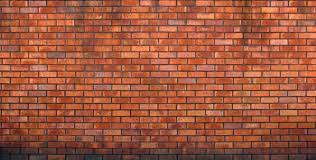
^Writer's block, a visual representation^
When it comes to writer's block, there's a lot of things someone could do to get through it. But, the complexity and individuality of it is the worst part. Everyone experiences it in their own way, and they have their own sets of "cures" for it. There isn't one single thing that works for everyone, nor is there one single way to accurately describe what writer's block is and what it does to the creative mind. Above all, the "cure" for any blockages is straightforward: write. But, as many of us know, straightforward doesn't mean simple, and it definitely doesn't mean easy.
Write. Sounds easy enough as is, right? But if it was, writer's block wouldn't be a thing. Sure, we all wish we could just let our stories constantly go from our brain to the page with a perfect flow. But that just doesn't happen. For some people, such as myself, it's not so much having a lack of ideas or knowledge of where to go with the story, but rather it is a lacking of motivation or belief in ability. Others, however, do have the issue of not knowing where to take their story in the next chapter, or even on the next page. So what do you do?
Sure, you could sit down and force yourself to write. I've done it a fair share of times and it does get me back into the swing of things a lot of the time, but wanna know a secret about that stuff I forced myself to write? It sucks. It sucks hard. That's what happens when you force it out of you. You'll get back into the swing of it sooner or later, but the stuff you force out will be terrible. Doesn't matter who you are or what you write, if you force it, it won't work. And, I don't know about any other writer's out there, but I don't want to put a terrible chapter into a work in progress. Preferably, I wouldn't want to write anything terrible ever, but that's just not possible. But, there is one thing that many writer's block sufferers, my past self included, miss when it comes to breaking through the blocks: When the answer is to write, it doesn't have to be on something serious.
We all love our manuscripts, and we want the best for them (or we should anyway), so breaking through blocks in our minds by working on our much-loved manuscripts might not be good. It wouldn't do you, or your passion a justice. My suggestion, for your sake and the sake of your work, would be to keep a separate writing file just for breaking through your blocks. It doesn't have to be anything serious, as a matter of fact it is better if it isn't. In my case, it's a Word file that, when I need to, I sit down and just write stuff. It is, as I call it, my "spill file". Sometimes it's whatever I'm thinking about right then, or whatever happened that day, or a summary of a story I want to write sometime in the future. Whatever I've got to put on the page, I let it spill out freely. I start by forcing it, letting the crappy writing out into a place specifically made for it, then before I know it I'm writing in that file because I want to. Then I just switch over to my manuscript and keep on keeping on, and my serious writing thanks me for it.
It doesn't even have to be a computer file. I know a good few people who keep journals or diaries to go through it. But, if you're like me, you're not a fan of the diary-style of writing, but it's the same concept. If you're having trouble with writer's block, you have to write to get through it, but not on your passion project. Once you've got your side journal or "spill file" to send all that forced writing and necessary gibberish, you'll be able to do better by your own writing and your work will end up more polished and organized at the end. In short, you can break through writer's block and organize your mind all at the same time, you've just got to put all the words you've got on paper, and get back to your manuscript or project when you can better focus your passion.
And now everyone's favorite part. Shameless plug time! If you liked this blog post, check out what happens when I manage to break through my writer's block and finish my novels: http://www.amazon.com/Mitch-Goth/e/B00C0GMK28/
Published on June 26, 2016 12:14
May 9, 2016
"Pausing" Your Writing
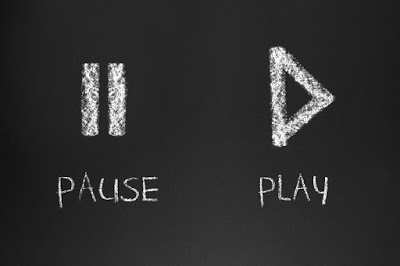
Yes, it is possible. In a world that demands many writers to always be writing, the idea of taking a "pause" on your writing might seem strange or dangerous for your motivation or quality of work. Shut that voice in your brain up and take a break once and a while. Your mind and your writing will thank you in the long run.
We are living in the era of the "write everyday" mentality. If you didn't write something today, be it 100 words or 1000+, your day simply is not complete. A writer must always be writing. Always. How many of us achieve that goal all the time? Very few would say they do, and some of those people are definitely lying. So why should we continue to let this workhorse mentality control our motivations and writing life so much?
I don't know about all the other writers out there, but I stress about my writing schedule a lot. Throughout my week, I usually write 1,500 - 3,000 words each day, 4-6 days a week. And if I start missing more than a couple days in a week, I'll start to stress out about it. Why? The mentality of the constantly working writer. And so I decided to combat that feeling and that mentality.
Late last month, I was hard at work on my current work in progress, and had hit a string of chapters that didn't come out the way I expected or wanted them. They were, and are, probably fine, but I only saw faults. Still, I kept on forcing the words out in bulk everyday. That didn't help, and so I tried out the exact opposite strategy. I took a pause on my writing, every aspect, and said I'll be back in two weeks tops. It's been nine days and I'm dying to get back to it, more motivated and excited to write than I have been in months.
My advice to the other writers out there: try this. It is the nature of the creative mind to be insecure or unsure about their continuation of work if they stop, but fight against this. Have some self-control, and you will have control over the work you produce. Sure, no one is truly forcing you to keep writing, but no one is forcing you to stop forever either. It takes discipline to take a break from a long, difficult process and then come back to it. But you ought to have discipline for something you're truly passionate about anyway.
Before I took my writing pause, I was burned out, stressed out, and tired from daily writing in the mid 2,000's range. Anyone who works too long or too hard on anything will sputter out after a certain amount of time. Expecting yourself, or anyone else, to keep going through that is frankly stupid and rather irresponsible. I was not producing my best writing in that state, and I knew I would stay on that track of sub-par production if something wasn't done. So I took a step back rather than mindlessly soldiering on, and both my mental health and quality of writing benefited from it.
No artist, writer or otherwise, should be expected to just keep blindly chugging forward on a project when stress and constant work is bringing down them and their craft. For the sake of mental health and the quality of work produced, artists need breaks. But they're also not the most common break takers in the world. So this is me telling you all to do it. Put a pause on it if you know you need time away, time to think over what your next creative move is, time to rest and return excited and energetic over the project again. There is no need to rush when going slow can do you and your work better.
Shameless plug time! If you liked this blog post, check out my books on Amazon! http://www.amazon.com/Mitch-Goth/e/B00C0GMK28/
Published on May 09, 2016 17:48
April 4, 2016
The KindleScout Experience: Part II
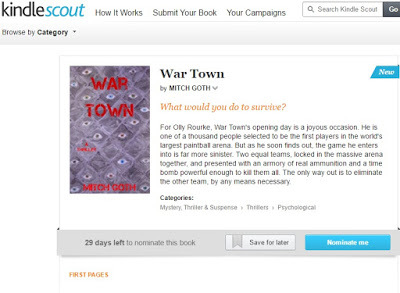 Two weeks left in the KindleScout campaign for my new novel, War Town. I wish I could say I had more information to pass along. At the start, I figured KindleScout wouldn't give me much to go on throughout the campaign, but I had no idea how little I would have to off of. In truth, the only way I know how well my campaign is doing is based on two things. 1) The number of hours spent on the "hot" list. 2) Total campaign page visits. Not a lot.
Two weeks left in the KindleScout campaign for my new novel, War Town. I wish I could say I had more information to pass along. At the start, I figured KindleScout wouldn't give me much to go on throughout the campaign, but I had no idea how little I would have to off of. In truth, the only way I know how well my campaign is doing is based on two things. 1) The number of hours spent on the "hot" list. 2) Total campaign page visits. Not a lot.If we consider the amount of stats given to the owner of any Facebook page versus the campaign runner for KindleScout, we can see just how little info is being given out. I can go to my Facebook page right now, find out how people have visited, liked, where they liked, their general ages, their general locations, what time they liked, what time my likers are online, how many people view what tabs and how long they spend on those tabs. Meanwhile, I get two numbers off of KindleScout, and neither of them happen to be how many nominations I have.
Over the course of 16 days, I have gotten 96 page visits, or so KindleScout claims. I have no idea whether or not this is true, but I'll go ahead and assume it is. Not the number I was hoping for, but oh well. So far, War Town has spent 0 hours on the "hot" list. I wish I could inform you all as to why this is. But I can't. I don't know. How many noms do you need to get onto this seemingly coveted "hot" list? No clue. Is it a certain number per hour or total? No clue. I know nothing of this "hot" list other than the fact that it exists and, supposedly, the more hours your book spends on it the better for your chances on the campaign. But, Amazon and KindleScout both do state that they make the final decision on publishing a book via Kindle Press at the end. So do the noms really mean anything at all? Maybe? Yes? No? Who knows. A few people in the Amazon offices, probably. Other than that, I have no idea. There's no threshold of noms you need, nor would you even be able to tell if you reached that count or not. For all I know, I could win the contract not getting even one more page view, while someone who spent their whole campaign on the "hot" list could be stepped over. There's a lot that is not being stated in all this, and through 16 days I have gotten very few answers to my questions regarding just what makes KindleScout tick.
With two weeks still left in the campaign, I'm sure there still things to see, try, and blog about. But as it stands right now, I don't have much to tell you all about, nor do I have much to go on personally. Aside from KindleScout's lack of information regarding the status of my nominations and campaign as a whole, it remains an interesting publishing tool and take on the whole process of publication.
Look out for "The KindleScout Experience: Part II" when it comes and, of course, check out, read, and maybe even nominate War Town on KindleScout HERE
Published on April 04, 2016 12:55
March 18, 2016
The KindleScout Experience: Part I
Since its inception, KindleScout has been received with cautious, mixed response from independent authors all around, and for good reason. KindleScout is essentially crowdsource publishing, a wild new take on what it means to be good enough for publication. But, without directly participating, there's a lot a writer might miss about this peculiar publishing program. And that's what I'm here for! My new novel, War Town, has been accepted into the program and just when live this morning. As the 45-day KindleScout process goes on with me, I'll be adding new parts to "The KindleScout Experience" blog. This is part one, enjoy.
What is KindleScout? KindleScout is Amazon's new attempt at a publishing contest, the replacement for the now defunct Amazon Breakthrough Novel Award contest. For years, the ABNA was the award to win if you were an indie author. But, not many actually won. One person per year if my recollection doesn't deceive me. So, with a company as explosively expansive as Amazon, it makes sense that they wanted something that produced better results faster. Enter KindleScout.
A writer, such as myself and some of you reading this, can submit a manuscript of at least 50,000 words in the genres of Mystery/Suspense/Thriller, general Literature & Fiction, Romance, Sci Fi and Fantasy, and YA/Teen. Along with the manuscript, you add it most everything else you would if you were publishing in the classic KDP style. Cover, one-sentence blurb, long description, genre and all that. Below you can see a snap of what the submit-page looks like. Any KDP authors out there will notice lots of similarities. Categories are the same, entries are the same, most everything is the same. But there are a few important differences. For one, you need a one-liner. And when they mean one line they mean it. It can only be a single sentence long. As you can see below, my short one-liner took up all but 16 remaining characters. Another big difference from KindleScout and KDP is the long-form description. You only get 500 characters which, if you know twitter, isn't much. Whatever book blurb you have might be way too long for KindleScout. If you're thinking of submitting to KindleScout, you'd better be concise with your blurb writing.
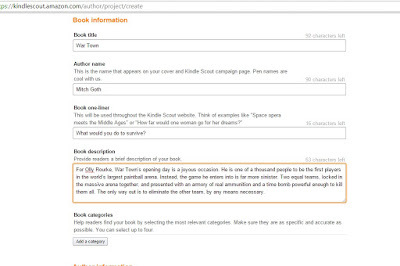
Once you get through the submitting process, you'll be taken to the policy accepting page, as with many other sites. Normally, I would breeze right by this, as it is pages upon pages of legalese, but this book is my baby, I don't want to land it anywhere I don't want it. And, if I wanted to blog about KindleScout I ought to be thorough. So I perused the long document for a bit. It goes through what it means to publish with KindleScout. If your campaign is successful, you'll get a 5 year deal with Kindle Press and a $1,500.00 advance against your royalties paid shortly after your acceptance for publication, and a 50% royalty rate should you out earn your advance. As far as advances go, KindleScout's is kind of low, but for a single book deal in a world where advance sizes are always going down, it isn't too bad. Royalty wise, you won't get much better than 50% outside of indie publishing. Some may be cautious at the 50% rate when KDP gives 70%, but Kindle Press does more for your book than KDP does. It's not just a new publishing platform, it's marketing.
Marketing is a particularly odd portion of KindleScout. They don't seem to list specifics on how they'll market your book, other than your book will be added into the Amazon marketing list. I assume they'll send out emails about your book, but beyond that it is a fog of vague language. But, that's not to say it is too shady. They all but guarantee solid sales through your contract. The KindleScout contract clearly states that, if a book doesn't earn $25,000 over the 5 year contract, the author has six months to opt out of the whole program and their rights revert to them immediately. In a world of entrapping contracts and shady deals, this is refreshingly straightforward. If sales are particularly abysmal through Kindle Press, you can opt out after 2 years. Five years might seem like a long time, but with the 2 year addition, they can't really entrap you in a piss poor contract. If they don't treat your book right, you can just take it back when the time comes, no strings attached (or so they say). Now, KindleScout hasn't even been around for 5 years, not even 2 if I remember the launch date right. So, whether or not it is truly as easy as they say to opt out of the program due to low sales has yet to be seen, but the way they say it, it seems that way. All that being said, there are some interesting additions to it all. As the agreement seems to read, Kindle Press and Amazon wants to take over ALL of marketing, and the way they state it makes it seem like the author isn't allowed to do much marketing themselves. If this is correct, it makes me a bit more hesitant, as I am always someone who wants in on the marketing of my books, to make sure they are as successful as they can possibly be. Whether or not that is the case, time will tell.
As for my book in particular, it just launched today! KindleScout let me know a day in advance when it would release so I could get my promotional ducks all in a row, which was nice. War Town officially launched into the 30 day (although it says 29 days left on the site) crowdsource publishing campaign. I'll be keeping up on blogging as the process goes on and I learn more about what all goes into KindleScout and how things go as the campaign gets further in. This was just an introduction, and I look forward to informing authors all around about KindleScout, so they can better decide if participation in the program is right for them or not. As I see it now, KindleScout is a cool new take on publishing, but doesn't seem like it would be right for every writer by any means, like people protective over their rights or writers in genres not represented by KindleScout right now.
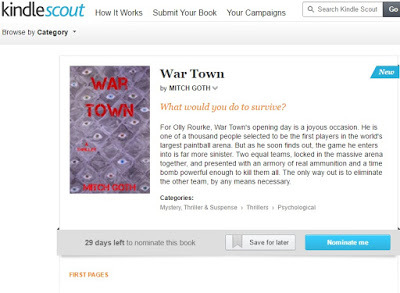
Once your submission gets through, this is what your book page will look like. I've got to admit, it's pretty snazzy looking! Beneath that are the sample chapters. They say the first 5,000 words but they cut mine around 4,000. A lot happens in those first 4,000 words so I'm fine with it, but to the other writers out there, be aware that their definition of 5,000 words might be different from yours. Overall, this is just the beginning, and as things go on I'll be sure to inform everyone.
Look out for "The KindleScout Experience: Part II" when it comes and, of course, check out, read, and maybe even nominate War Town on KindleScout HERE
What is KindleScout? KindleScout is Amazon's new attempt at a publishing contest, the replacement for the now defunct Amazon Breakthrough Novel Award contest. For years, the ABNA was the award to win if you were an indie author. But, not many actually won. One person per year if my recollection doesn't deceive me. So, with a company as explosively expansive as Amazon, it makes sense that they wanted something that produced better results faster. Enter KindleScout.
A writer, such as myself and some of you reading this, can submit a manuscript of at least 50,000 words in the genres of Mystery/Suspense/Thriller, general Literature & Fiction, Romance, Sci Fi and Fantasy, and YA/Teen. Along with the manuscript, you add it most everything else you would if you were publishing in the classic KDP style. Cover, one-sentence blurb, long description, genre and all that. Below you can see a snap of what the submit-page looks like. Any KDP authors out there will notice lots of similarities. Categories are the same, entries are the same, most everything is the same. But there are a few important differences. For one, you need a one-liner. And when they mean one line they mean it. It can only be a single sentence long. As you can see below, my short one-liner took up all but 16 remaining characters. Another big difference from KindleScout and KDP is the long-form description. You only get 500 characters which, if you know twitter, isn't much. Whatever book blurb you have might be way too long for KindleScout. If you're thinking of submitting to KindleScout, you'd better be concise with your blurb writing.

Once you get through the submitting process, you'll be taken to the policy accepting page, as with many other sites. Normally, I would breeze right by this, as it is pages upon pages of legalese, but this book is my baby, I don't want to land it anywhere I don't want it. And, if I wanted to blog about KindleScout I ought to be thorough. So I perused the long document for a bit. It goes through what it means to publish with KindleScout. If your campaign is successful, you'll get a 5 year deal with Kindle Press and a $1,500.00 advance against your royalties paid shortly after your acceptance for publication, and a 50% royalty rate should you out earn your advance. As far as advances go, KindleScout's is kind of low, but for a single book deal in a world where advance sizes are always going down, it isn't too bad. Royalty wise, you won't get much better than 50% outside of indie publishing. Some may be cautious at the 50% rate when KDP gives 70%, but Kindle Press does more for your book than KDP does. It's not just a new publishing platform, it's marketing.
Marketing is a particularly odd portion of KindleScout. They don't seem to list specifics on how they'll market your book, other than your book will be added into the Amazon marketing list. I assume they'll send out emails about your book, but beyond that it is a fog of vague language. But, that's not to say it is too shady. They all but guarantee solid sales through your contract. The KindleScout contract clearly states that, if a book doesn't earn $25,000 over the 5 year contract, the author has six months to opt out of the whole program and their rights revert to them immediately. In a world of entrapping contracts and shady deals, this is refreshingly straightforward. If sales are particularly abysmal through Kindle Press, you can opt out after 2 years. Five years might seem like a long time, but with the 2 year addition, they can't really entrap you in a piss poor contract. If they don't treat your book right, you can just take it back when the time comes, no strings attached (or so they say). Now, KindleScout hasn't even been around for 5 years, not even 2 if I remember the launch date right. So, whether or not it is truly as easy as they say to opt out of the program due to low sales has yet to be seen, but the way they say it, it seems that way. All that being said, there are some interesting additions to it all. As the agreement seems to read, Kindle Press and Amazon wants to take over ALL of marketing, and the way they state it makes it seem like the author isn't allowed to do much marketing themselves. If this is correct, it makes me a bit more hesitant, as I am always someone who wants in on the marketing of my books, to make sure they are as successful as they can possibly be. Whether or not that is the case, time will tell.
As for my book in particular, it just launched today! KindleScout let me know a day in advance when it would release so I could get my promotional ducks all in a row, which was nice. War Town officially launched into the 30 day (although it says 29 days left on the site) crowdsource publishing campaign. I'll be keeping up on blogging as the process goes on and I learn more about what all goes into KindleScout and how things go as the campaign gets further in. This was just an introduction, and I look forward to informing authors all around about KindleScout, so they can better decide if participation in the program is right for them or not. As I see it now, KindleScout is a cool new take on publishing, but doesn't seem like it would be right for every writer by any means, like people protective over their rights or writers in genres not represented by KindleScout right now.

Once your submission gets through, this is what your book page will look like. I've got to admit, it's pretty snazzy looking! Beneath that are the sample chapters. They say the first 5,000 words but they cut mine around 4,000. A lot happens in those first 4,000 words so I'm fine with it, but to the other writers out there, be aware that their definition of 5,000 words might be different from yours. Overall, this is just the beginning, and as things go on I'll be sure to inform everyone.
Look out for "The KindleScout Experience: Part II" when it comes and, of course, check out, read, and maybe even nominate War Town on KindleScout HERE
Published on March 18, 2016 11:49
February 8, 2016
What Makes a Writer Successful
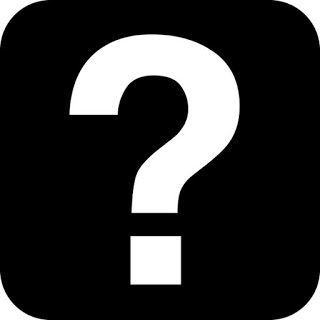
What makes a writer successful? According to some recent articles, success is based on sales, specifically 1,000,000 sales in the past 5 years (link). Is that what makes a writer successful? Absolutely not, not by any means. But, if specific sales numbers don't measure success for a writer, then what does? The answer to that is simple: there's isn't one single answer.
Most sales-centered writers would most likely count success not as 200,000 sales per year, rather as however much they need to sell to live off their writing. Based on their lifestyle and book prices, that could be as low as 10,000 books per year, or as high as 100,000+. Even still, that's a far cry from 200,000 per year. My personal definition of monetary success? 15,000 sales per year. Am I there? No way, but seeing it that way makes success much more realistic of a goal than 1,000,000 over five years.
But success is much more than sales. Even though I don't live off my writing, nor can I really see myself living off it anytime soon, I consider myself a successful writer. But how's that possible, Mitch? Don't high sales make you feel good and low ones make you feel bad? Well, yeah, that's how business works. But success shouldn't be focused on numbers or monetary gain in any artistic business endeavor. If you found out your books took off and paid your bills simply because the public love laughing at your awful writing and ridiculing how bad you were at it, would you still consider yourself successful because your numbers were high? I'd venture a guess and say no, you wouldn't. Success is five star reviews from people you've never met, success is fan art, success is fans reaching out to you to make sure you know just how your writing changed their lives. Success is all in the audience.
Even though I don't sell the way I want to, my career could end with me being happy about it, because I've gotten those reviews, and gotten those bits of fan mails praising what I do and how my writing changed a reader's life. I never thought that would happen, but it did. That's the moment I became successful, sales numbers and money had nothing to do it.
In short, you can't measure a writer's success. It varies between each writer. Some only focus on sales as a measure of success, and within that group is a whole new level of difference. Successful sales for some are a few hundred, if that, while others measure success as millions sold and chart topper books. Those writers usually don't last long. For others, success is in the fan response no matter how many they sell. If they can please a single soul with their work, they're a success. Others still consider themselves successful if they even get their work out there. Success for a writer can't be measured by stats or sales rank, it can only be measured by the writer's own mind. Here's to hoping we all achieve success, whatever success means to you.
Published on February 08, 2016 11:50



